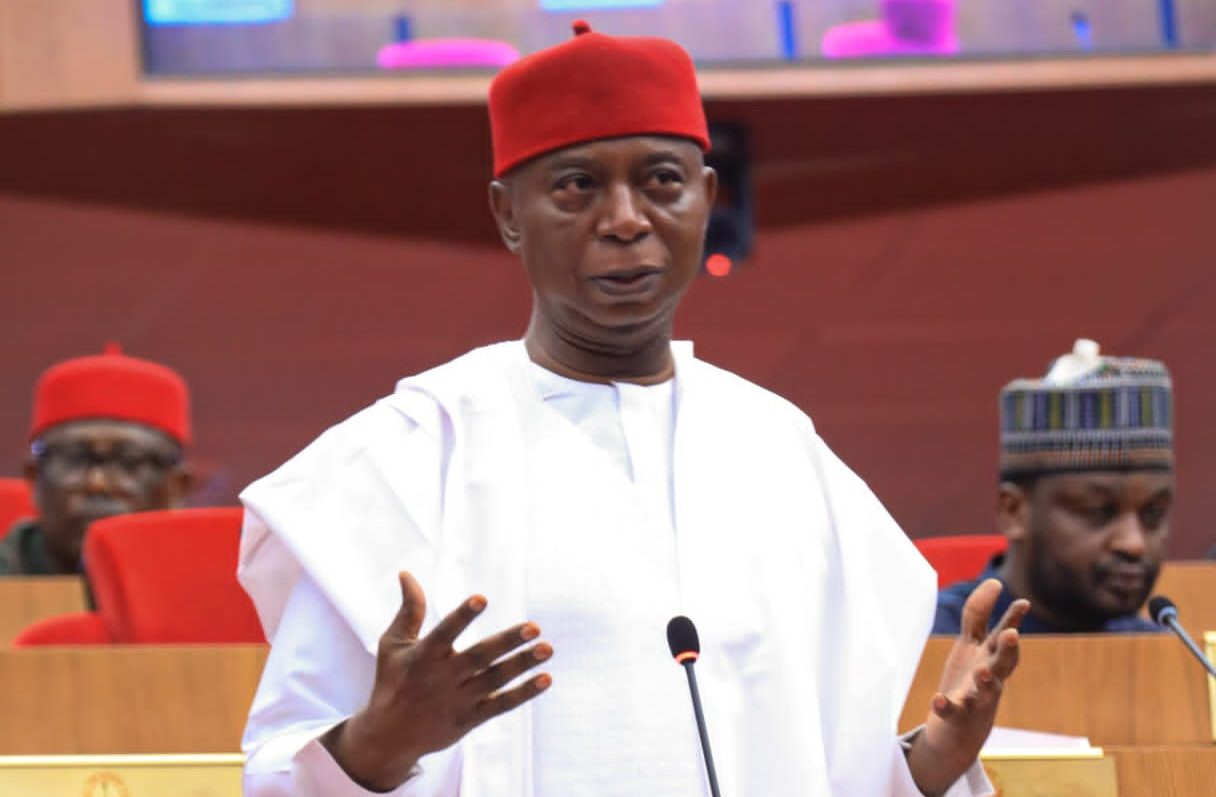OPINION
TOWERING IMAGE OF NED NWOKO AND BATTLE TO COMB FAKE NEWS, BY AUSTIN OYIBODE

The rise of social media has brought with it incredible opportunities for communication, networking, and the sharing of information. Yet, while these platforms have revolutionized how we connect and access news, they have also created fertile ground for the spread of misinformation and fake news. One public figure who has faced the damaging effects of such falsehoods is Senator Ned Nwoko, a respected Nigerian businessman, philanthropist, and politician.
Over time, various fabricated stories and false narratives have been circulated about him, threatening his reputation and the integrity of his good deeds for Nigeria. As the reach of social media grows, it is high time both individuals and platforms took responsibility and put an end to the harmful practice of spreading fake news.
The Challenge of Fake News in the Social Media Age
Social media has empowered millions of people to become content creators, allowing them to share their thoughts, opinions, and even news stories. However, this democratization of information has also led to significant challenges. The ease with which misinformation can be shared means that anyone with a smartphone can disseminate unverified claims that can quickly gain traction, regardless of their accuracy. In many cases, these falsehoods are designed to mislead, malign, or manipulate the public to believe what is not true.
Senator Ned Nwoko, despite his contributions to Nigeria in the fields of philanthropy, business, and politics, has not been immune to the damaging effects of fake news. Over the years, he has been the target of baseless rumors and fabricated stories that have sought to diminish his reputation and undermine his impact. These false narratives, whether related to his personal life or his business dealings, are often spread by individuals or groups with ulterior motives, such as political opponents or those who seek to profit from sensationalism.
One of the most concerning aspects of fake news is its ability to go viral in a short period of time. A single misleading or defamatory post about a public figure, whether on X, Facebook, or Instagram, can quickly be shared thousands of times, reaching millions of people. Once a false narrative gains traction, it becomes increasingly difficult to correct, and the damage done to an individual’s reputation can be long-lasting.
The Harmful Effects of Fake News on Public Figures
For public figures, the spread of fake news has far-reaching consequences. The primary harm lies in the distortion of image. Senator Nwoko has worked tirelessly to promote educational initiatives, healthcare reforms, and other philanthropic causes that benefit Nigerians, especially those in underserved communities.
Senator Nwoko, over the years, has contributed immensely to the development of Delta North and Nigeria, prior to becoming senator of the federal republic of Nigeria. He has given scholarships to many youths of Anioma nation. He has made his mark in history and written his name in gold. Senator Nwoko has used his platform, contacts and connections to advocate for meaningful change in Nigerian society.
Therefore, fabricating stories to tarnish his reputation and undermine his
contribution to the development of the nation tantamounts to injustice and wickedness. When false stories are spread about him, they distract from his actual contributions and achievements for Nigeria.
Fake news has the potential to incite division and conflict. False narratives often rely on sensationalized or inflammatory language to provoke strong emotional reactions. This can polarize the public, pit different groups against each other, and create unnecessary tension. The consequences are not just limited to the individual being targeted—fake news has the ability to disrupt social cohesion and damage the fabric of society.
The Responsibility of Social Media Platforms
While individuals who create and spread fake news must be held responsible and accountable, social media platforms also bear a significant responsibility in curbing the spread of misinformation. As the primary vehicles through which fake news spreads, platforms like X, Facebook, YouTube and Instagram must do more to identify and block false information. Currently, while many of these platforms have implemented measures to flag or remove fake news, the enforcement of these policies remains inconsistent.
The challenge lies in the scale and speed at which misinformation spreads. In many cases, by the time a fake news story is flagged or taken down, it has already been shared widely, leaving lasting damage in its wake. This is particularly problematic for personalities who have spent years to build their reputation and added value to society.
To combat this, social media platforms need to invest more heavily in fact-checking mechanisms and automated tools that can identify false content before it goes viral. Furthermore, these platforms must work with trusted fact-checking organizations to ensure that misleading claims are corrected as quickly as possible. Transparency in how misinformation is handled and a commitment to holding users accountable for spreading fake news can help foster an environment of responsibility and trust.
What Can Be Done to Stop the Spread of Fake News
First and foremost, social media users must become more discerning about the content they consume and share. Rather than accepting information at face value, individuals should take the time to verify the accuracy of stories before spreading them. This can be achieved by cross-checking claims with reputable news sources or using fact-checking websites that specialize in debunking false information.
Moreover, governments and policymakers should introduce stronger regulations to address the spread of fake news on social media. While respecting freedom of speech, regulations can ensure that false information is not allowed to thrive unchecked. This may include requiring social media companies to take more responsibility for the content on their platforms and imposing fines for violations.
Another way out may be one of the bills being sponsored by Senator Ned Nwoko for social media platforms to build offices in Nigeria. Having offices in Nigeria will aid easy resolution of issues arising from false publications by sensational social media users or people intent on gaining traction with reports intended to damage reputations.
Time for Action
The spread of fake news is a growing problem that must be addressed for the sake of public individuals and the integrity of public discourse. The consequences of fake news – eputation damage, erosion of trust, and societal division – are far-reaching and must be tackled headlong. Social media platforms and users must work together to create an environment where truth and accuracy prevail.
As we move forward, it is crucial that we hold accountable those who spread falsehoods. Many of such have been arrested, tried and jailed for deliberately causing harm to public figures just to go viral and gain followers at the detriment of public figures and national interest.
We also need to ensure that social media is a space where responsible and honest communications can thrive. It’s time for social media users to stop spreading fake news, and for society to actively protect the truth and bring fake news peddlers to justice.















